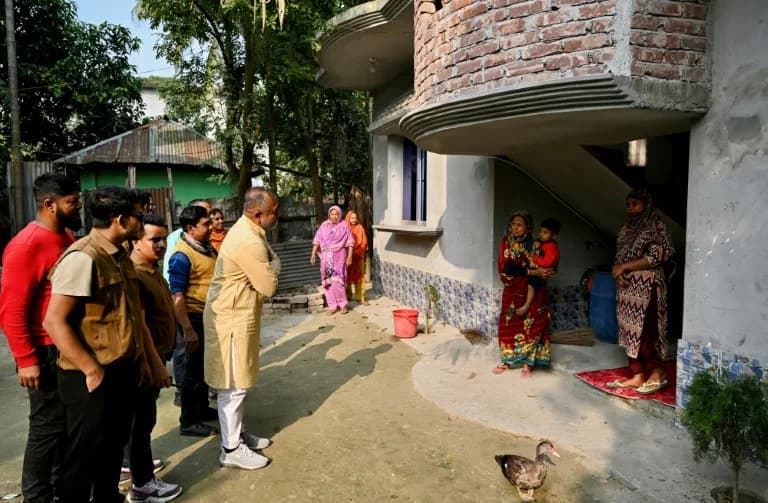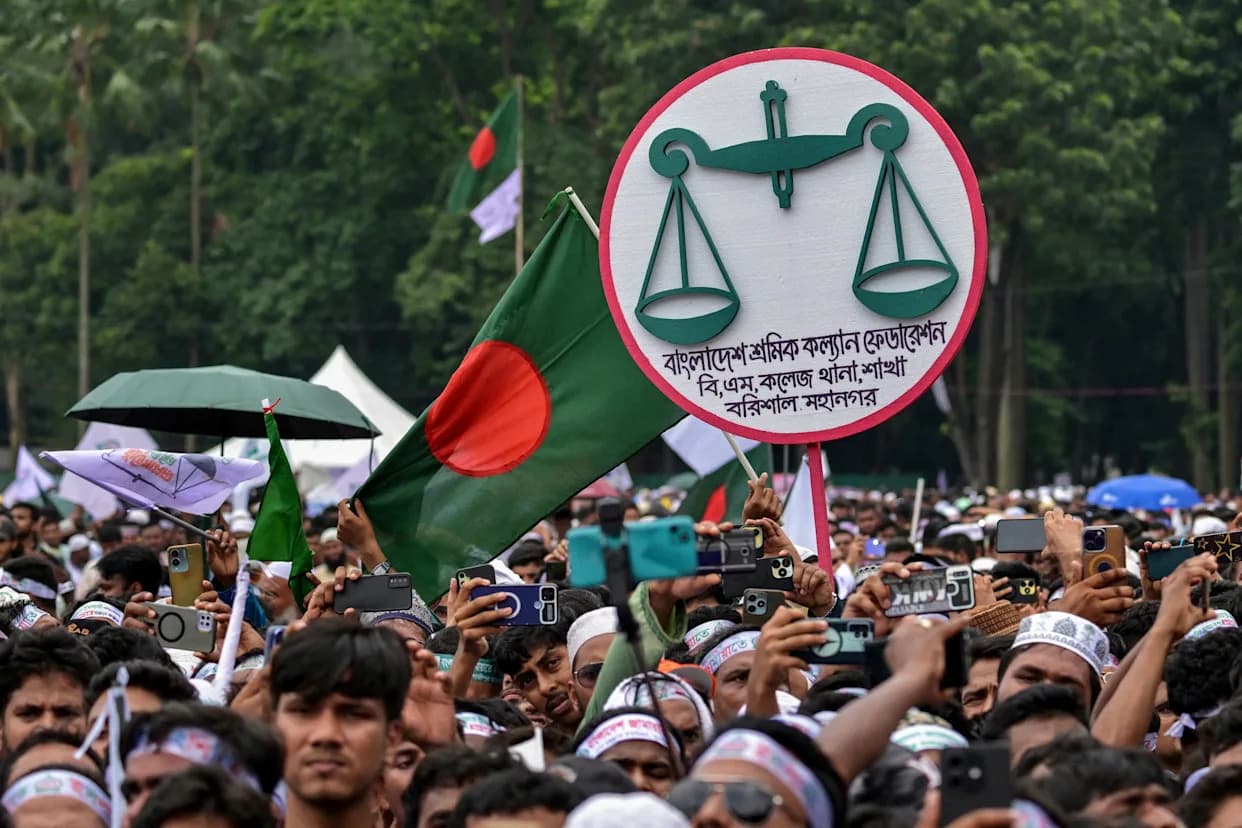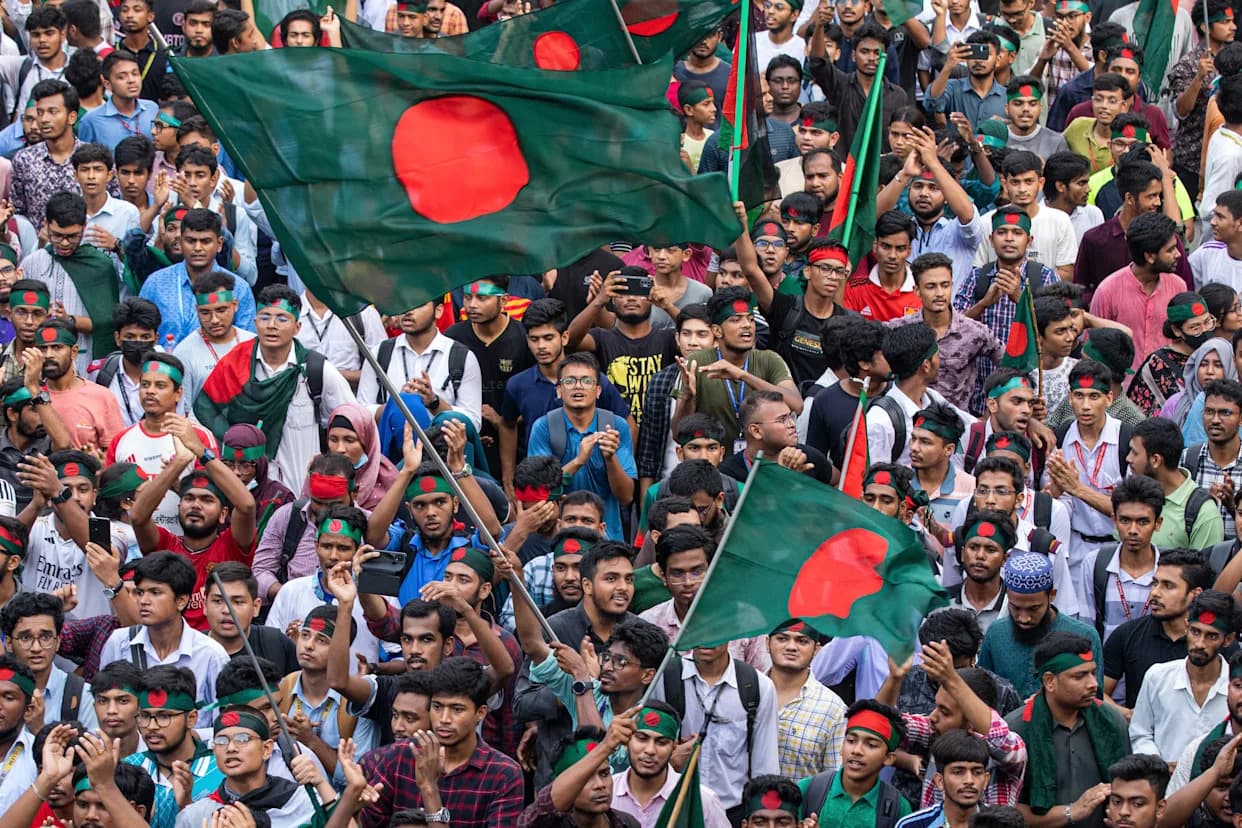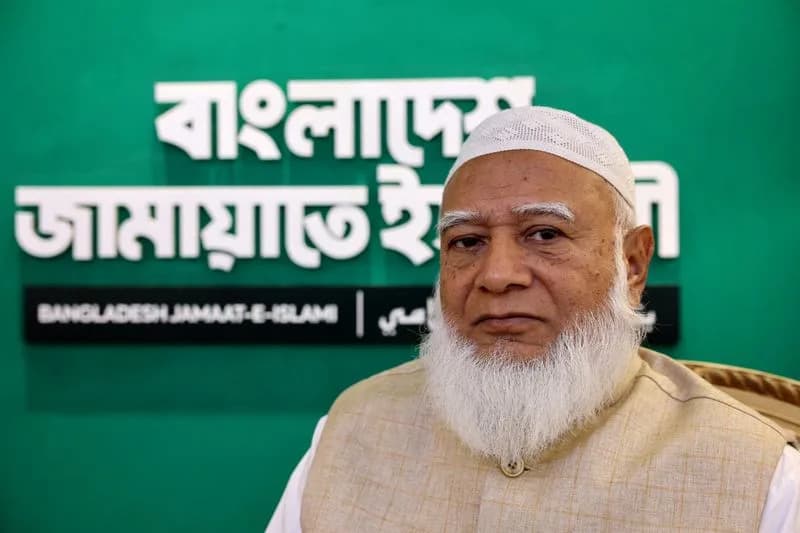Khaleda Zia, 80, will stand in elections expected in February and plans to contest three constituencies, the Bangladesh Nationalist Party announced. Her son, Tarique Rahman, 59, who has lived in Britain since 2008, will also run and was recently acquitted of a life sentence related to a 2004 grenade attack. Zia was jailed in 2018 under Sheikh Hasina's government and released after Hasina's ouster in August 2024. Their return to the ballot revives the long‑running "Battle of the Begums" rivalry that has shaped Bangladeshi politics for decades.
Bangladesh: Former PM Khaleda Zia to Contest February Elections; Son Tarique Rahman Also Enters Race

Former PM Khaleda Zia to stand in February vote
Khaleda Zia, the former prime minister of Bangladesh, will stand as a candidate in elections expected to be held in February, the influential Bangladesh Nationalist Party (BNP) said on Monday.
The 80‑year‑old veteran politician has been a central figure in Bangladesh's often turbulent political life for decades, and the BNP is widely regarded as one of the leading contenders for the upcoming vote.
BNP senior leader Mirza Fakhrul Islam Alamgir told reporters that Zia plans to contest seats in three constituencies. Party officials say her health remains fragile after years that included imprisonment under Sheikh Hasina's administration; Hasina was deposed in a mass uprising in August 2024.
Zia served three terms as prime minister. She was jailed in 2018 on corruption charges during Hasina's government, which also restricted her ability to travel abroad for medical treatment. She was released last year soon after Hasina was removed from power.
Tarique Rahman, Zia's son and a prominent BNP figure who has lived in Britain since 2008, will also stand in the election, Alamgir said. Rahman — often referred to in Bangladesh as Tarique Zia — has lived in London since 2008, saying he left to escape politically motivated persecution and has not yet returned to Bangladesh to resume on‑the‑ground politics.
Following Hasina's removal, Rahman was acquitted of the most serious outstanding charge against him: a life sentence imposed in absentia for a 2004 grenade attack on a rally led by Hasina, an accusation he has consistently denied.
Context: a long‑running rivalry
For decades, Bangladeshi politics has been defined by the bitter rivalry between Khaleda Zia and Sheikh Hasina — a contest widely labelled the "Battle of the Begums," an honorific used in South Asia for two dominant female leaders.
- In 1975, Sheikh Mujibur Rahman, Bangladesh's independence leader and Hasina's father, and most of his family were killed in a coup.
- Three months later, Zia's husband, Ziaur Rahman — then deputy army chief — effectively assumed control and later became president (1977). He was assassinated in 1981.
- Khaleda Zia, then a 35‑year‑old mother of two, inherited leadership of the BNP and grew into a formidable political force, opposing military ruler Hussain Muhammad Ershad and later helping to remove him in 1990. The two women subsequently alternated in power for roughly 15 years.
What this could mean
The candidacies of Khaleda Zia and Tarique Rahman revive one of the most enduring rivalries in Bangladeshi politics. Their participation is likely to shape campaign dynamics, media coverage and voter mobilization in the run‑up to the vote. Observers will be watching for any legal or health-related developments, the choice of constituencies, and how rival parties respond as the election approaches.
Note: This article summarizes announcements from the BNP and public records of past events; it does not introduce new allegations or unverified claims.
Help us improve.


































